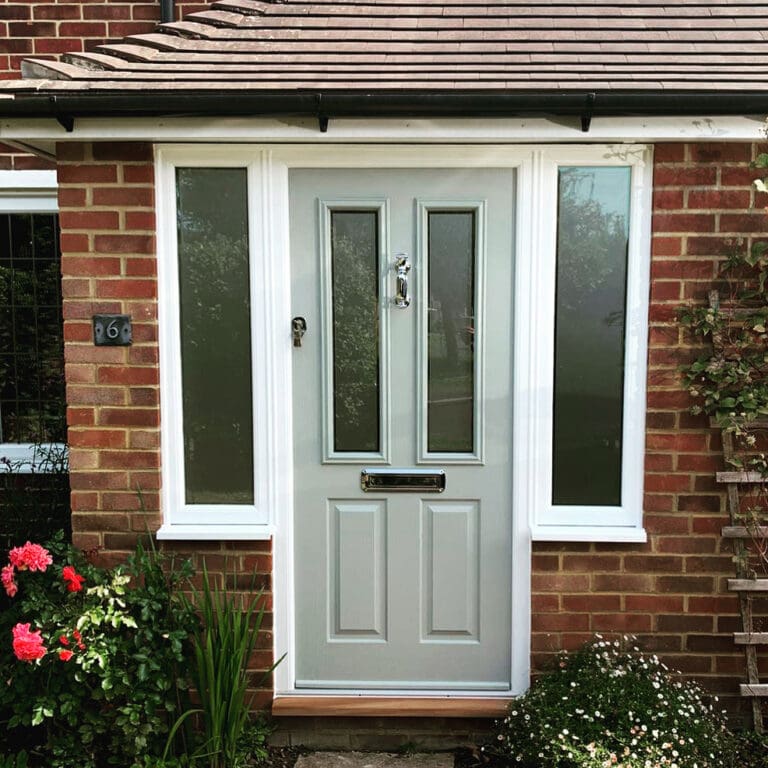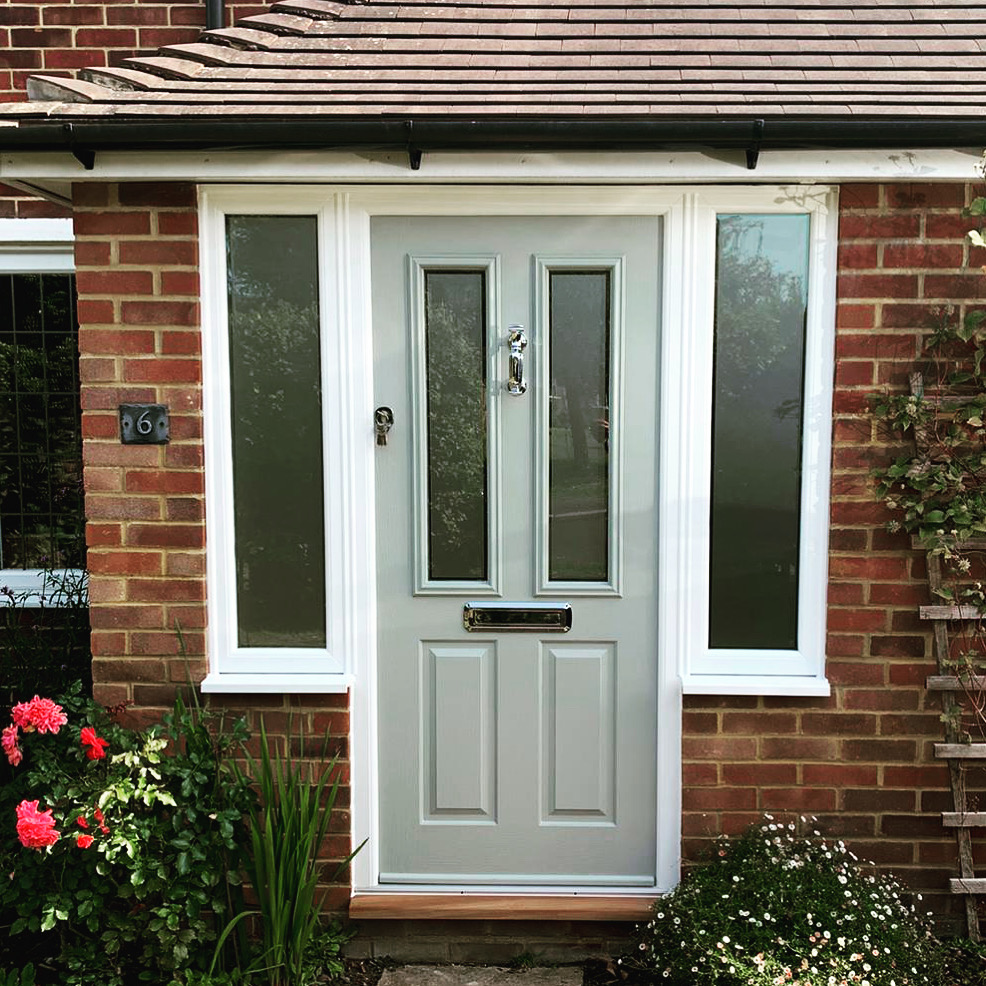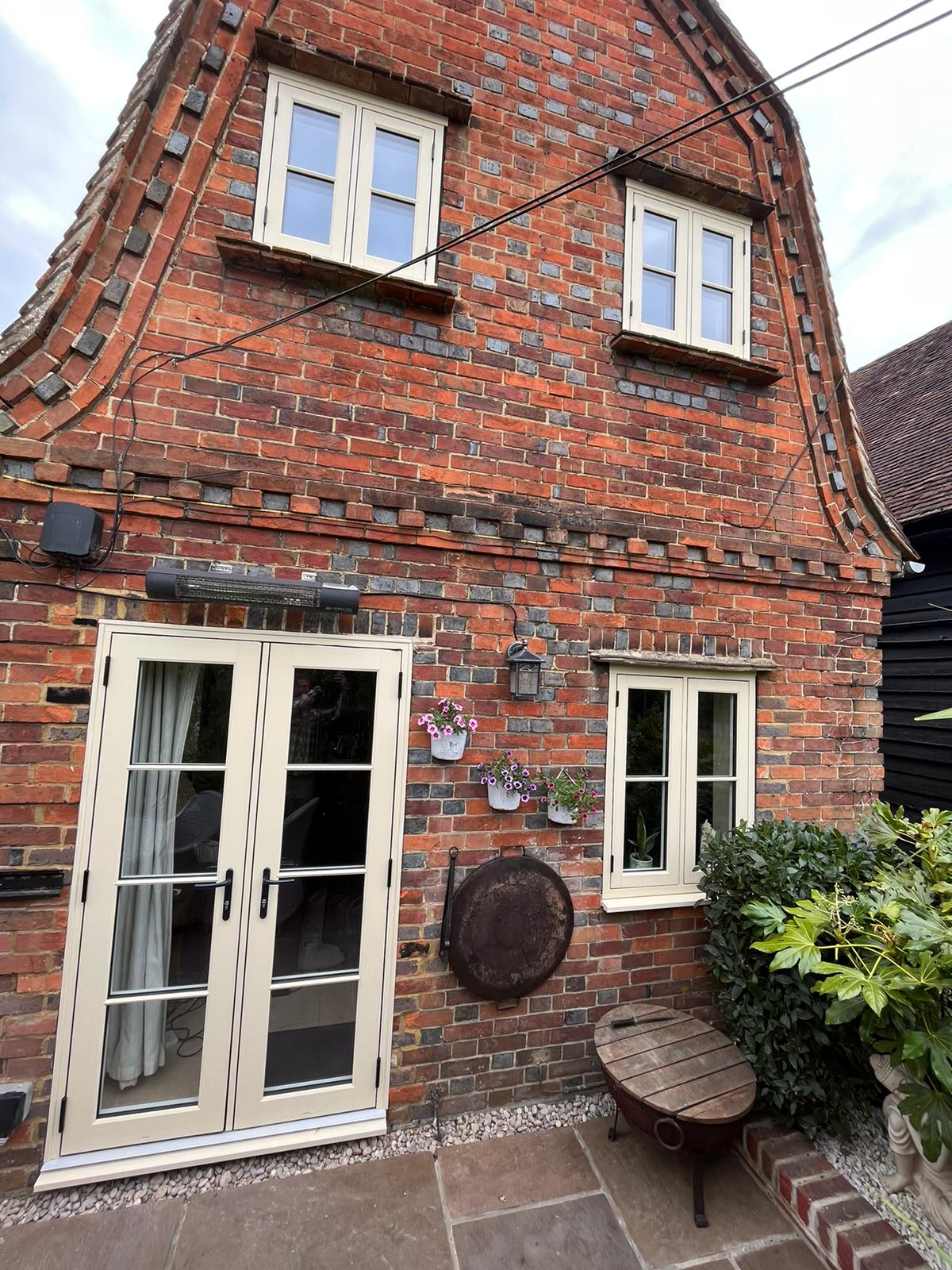If you’re considering upgrading your front door, you may find yourself choosing between a classic wooden door and a more modern composite alternative. Both have their own merits, but they differ significantly in terms of performance, maintenance, and appearance. So, which is the better option for your home?
In this post, we’ll walk you through the key differences between composite and wooden doors, helping you make an informed choice that suits your needs and enhances your home’s kerb appeal.
What Is a Composite Door?
A composite door is made from a blend of materials—typically including a solid timber core, reinforced uPVC, and a glass-reinforced plastic (GRP) outer skin. This combination is designed to offer the look of wood with enhanced strength, security, and weather resistance.
What Is a Wooden Door?
Wooden doors are traditionally made from solid hardwood or softwood. They’re loved for their natural beauty, warm appearance, and timeless style. However, they require more care to maintain their look and durability.

1. Durability and Longevity
Composite doors are built to last. Their multi-layered construction resists warping, swelling, and weather damage—common issues with wooden doors, especially in damp or humid conditions. While a well-maintained wooden door can last decades, it may require regular sanding, staining or painting to keep it weatherproof.
Winner: Composite doors, for long-term performance and low maintenance.
2. Security Features
Security is one of the main reasons people upgrade their doors. Composite doors usually come with advanced locking systems and are incredibly tough, making them a strong deterrent to would-be intruders.
Wooden doors can be secure too, but they’re more susceptible to wear and tear that can compromise their integrity over time.
Winner: Composite doors, for built-in security and strength.
3. Energy Efficiency
Composite doors are designed with insulation in mind. The dense core and weatherproof outer layer help prevent heat from escaping your home, making them highly energy-efficient.
Wooden doors can offer good insulation, especially hardwood versions, but they’re more prone to gaps and drafts as they expand and contract with changing temperatures.
Winner: Composite doors, for better thermal performance.
4. Maintenance Requirements
Composite doors are extremely low-maintenance. A simple wipe with a damp cloth is usually enough to keep them looking fresh. They don’t need painting or sealing, and they won’t fade or flake over time.
In contrast, wooden doors need regular care—repainting, varnishing, and checking for rot or warping. This upkeep can be time-consuming and costly over the years.
Winner: Composite doors, for ease of upkeep.
5. Appearance and Style
Wooden doors have undeniable charm and a traditional appeal that many homeowners love, especially in period or character properties. They can be customised in terms of carvings, stains, and finishes.
Composite doors, however, are increasingly sophisticated in appearance. Many mimic the grain and texture of real wood so closely that it’s hard to tell the difference. Plus, they come in a wide range of colours and styles to suit all property types. Have you seen what Solidor—our trusted supplier—has to offer?
Winner: It’s a draw—choose based on your aesthetic preferences.
When comparing composite and wooden doors, composite options come out on top in most categories. They offer superior security, energy efficiency, and durability—all with minimal maintenance. Wooden doors still have their place, particularly in older homes where period detail is important, but they do require more care and attention.
If you’re looking for a front door that combines style, security, and long-term value, a composite door is a smart investment.
At Milford Window Company, we supply and install high-quality composite doors manufactured by Solidor, designed to suit every style of home. Contact us today to explore your options and find the perfect fit.

